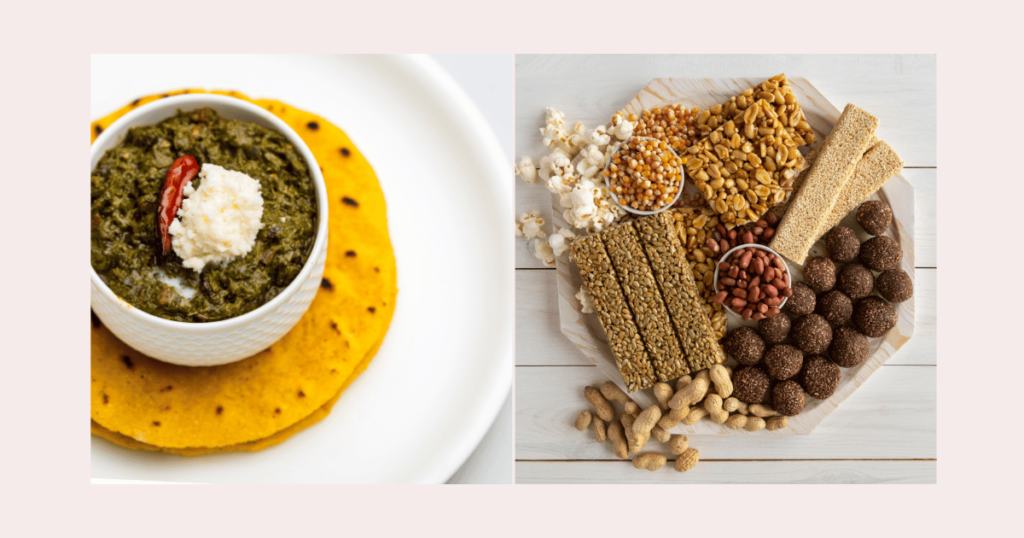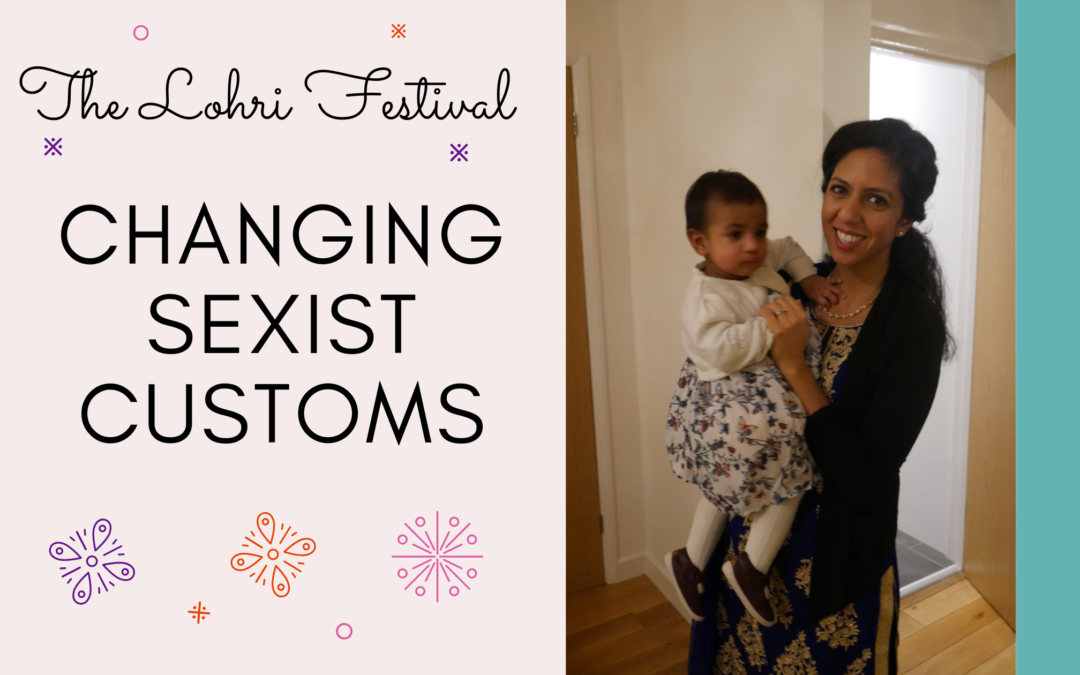In my family, we celebrate Lohri every year, mainly with food! For me, it brings back memories of eating delicious saag, Makki di roti (mustard leaf curry and corn flatbread) and kheer (rice pudding), traditional winter foods in India.
Looking into the festival a bit further, it takes place mainly in North West India in Punjab on the 13th of January every year as this is meant to signify the end of the peak of winter and the start of the harvest season. Bonfires would be lit and people would walk around the bonfire offering nuts, seeds and sweet things as a thank you to the gods and to seek blessings for the coming harvest. As it’s the start of a new season, people wish for prosperity and happiness.

But there is a darker side to the celebrations which shows the open sexism which happens in South Asian cultures that have been accepted for a long time.
Lohri is celebrated on a much bigger scale if a son has been born into a family or if a son has married within the past year and the family welcomes a new bride, it is a festival that didn’t start this way but has over many years been warped to create inequality between boys and girls and to focus on marriage.
Impact
I have three younger sisters and we didn’t have a large party when they or I were born, however, we did for my cousin brothers and nephews, and so I had accepted that this was something only for boys until I had my daughters and heard different views from women that I have spoken to who tell me of their experiences and feelings.
Imagine as a new mum of a daughter, when it came to Lohri your in-laws arranged a party to celebrate your sister-in-law’s son who was born in the same year but not for the daughter you just had. Or if you had a daughter first and then a son, and you see the difference in how your son is treated at birth at Lohri as compared to your daughter who will probably ask one day, did the same celebrations happen for her?
You can see the trauma this can bring to women and to girls when they start to see and understand the culture they have been brought up in, knowing that their births were not celebrated in the same way. This can leave an imprint, one that takes work to remove over time and one that I see women grapple with when I coach them on lower confidence, not setting boundaries for themselves and not speaking up because they have been shown traditions and beliefs that they internalise, that they are worth less than men, and that they are not to be celebrated by their own families and culture. It’s no wonder that we see so many women struggle with self-worth and confidence.
Time to change
We have a duty to raise the status of girls so they believe in themselves and have equal standing in the world and I believe this starts from the moment they are born. I didn’t realise how much of my own history I had to contend with when I had my daughters and how much unlearning I needed to do, I had been vocal about inequalities with my parents but as an adult, I had to think about what I wanted to change in raising my girls.
For Lohri, my husband and I decided to celebrate both our daughter’s births, which is still not common practice, often because couples wait for our elders to make the first move and decide which traditions they should follow especially if you live with them. But we are the generation of change-makers and we have the understanding and awareness to celebrate each child as a gift and do it equally, that is what I would implore everyone to do so that the next generation of girls is brimming with confidence, know their worth and feel just as loved and celebrated.

